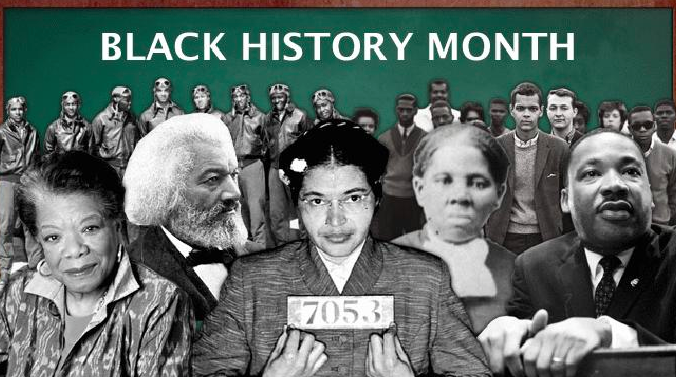Patrick Elliott This year’s Black History Month has had me questioning its significance and relevance in today’s society, specifically at Latin. I wonder if the people who came before us, and helped implement Black History Month, expected it to still be necessary. As one of the heads of the Black Student Union, it is my responsibility to celebrate this month throughout the school, and I am happy to do it, but is this month isolating these black figures, or integrating them into the education system? I believe that during the 1970s, when the government first accepted the month, it was to serve as a catalyst to putting black figures in American history books. The theme of Black History Month at Latin this year is “Black History is American History.” Within the red, white, and blue of America there are people whose innovations have moved the country farther; some of these people happen to be black. The board outside of the cafeteria shows a black figure for all of the 28 days of February. Each week is a different theme: inventors for week one, musicians for week two, writers for week three, and political figures for week four. Each page has a brief description of who they are, in hopes that some knowledge will rub off on the community. My vision at the beginning of the month was that these people would be seen for their work, and not just for their race. By putting these people up, I hope to show that these “black historical figures” are really just American historical figures. These people had a crucial role in building modern America, yet we put too much power into their race and it overshadows their accomplishments. Honestly, I am tired of describing black figures as “the first black *blank*”. Black historical figures have been dismissed for their work, because being the first black person to do something is all that is focused on. Yes, being the first black person to accomplish something is a great feat, especially when white people solely held positions for so long, but that isn’t the end of someone’s story. I think at this point, after everything this country has been through regarding race relations, we should be able to produce history books that include the whole story. I was in American History last year, and the only times our book mentioned black people, were during slavery, the civil war, the Harlem Renaissance, and Obama’s inauguration. These events were all apart of black history, but it is labeled as just that. In history books there are never figures introduced without first emphasizing their blackness. To me, this gives this person appear as having a certain agenda. These books ignore the fact that black people can accomplish things that aren’t focused around their race. There are classes about race at Latin, but most of these classes have spoken to the black struggle of being a slave or overcoming oppression. These classes are definitely necessary, and taking them has enhanced my knowledge on an underpublicized time period, but when will we get to the point of celebrating American history that includes black people? Why are all of the black authors we read at school writing about their struggle? Slave narratives and such stories are important, but there is so much more to black America. White authors have the privilege of writing without the label of being white; they are just looked at as normal. Black authors, and other minority authors, are expected to have their work voice some fight of climbing up the social ladder. Never have we recognized a black person for writing a great American novel. I still celebrate Black History Month, because although I think it shouldn’t be necessary, it is. We still live in a society where these 28 days are sometimes the only representation blacks have in history: this isolation of individuals is segregation of history. This isn’t a critique on how Latin does black history month but, rather, a statement on what its presence means. Every year we celebrate this month, and it is a sad reminder that we still live in a country that can’t bring history of all races together to write the American story.]]>
Categories:
A Critical Look at Black History Month
February 16, 2015
0
More to Discover






















































